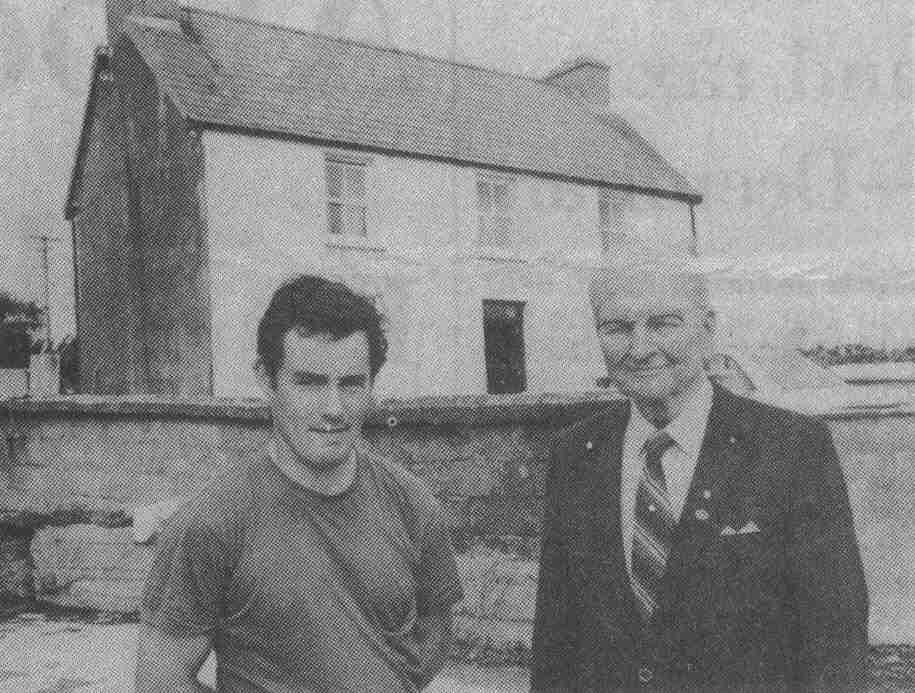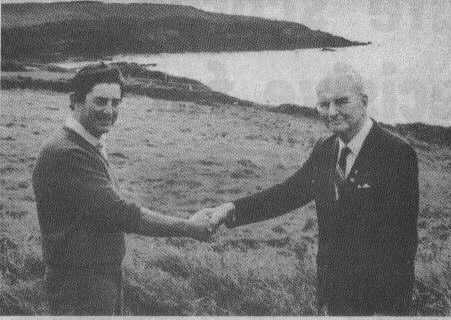
|

|
|
A crowd of local people was amazed that evening when they saw a German submarine coming within 10 yards of the shore at Ventry. What they didn't know at the time was that they were witnessing a most humane and unwarlike act by the German captain on board the submarine. Twenty-eight Greek sailors whose ship had been sunk by the Germans were landed at Ventry - two at a time in a small lifeboat. The submarine pulled away, none of the German crew having set foot on neutral Irish soil. Two weeks ago the captain of that German Sub-marine U 35, Werner F. R. Lott, made a nostalgic first trip to Dingle and even met Jim Fenton, Ballymore, one of the locals who had witnessed the drama of that night. |
 On this spot 45 years ago ... Werner Lott the man who commanded a German
submarine which landed 28 Greek sailors at Ventry harbour pictured with
local man Jimmy Fenton who was an 11 year old boy witnessed the drama.
On this spot 45 years ago ... Werner Lott the man who commanded a German
submarine which landed 28 Greek sailors at Ventry harbour pictured with
local man Jimmy Fenton who was an 11 year old boy witnessed the drama.Exclusive picture by Kevin Coleman |
